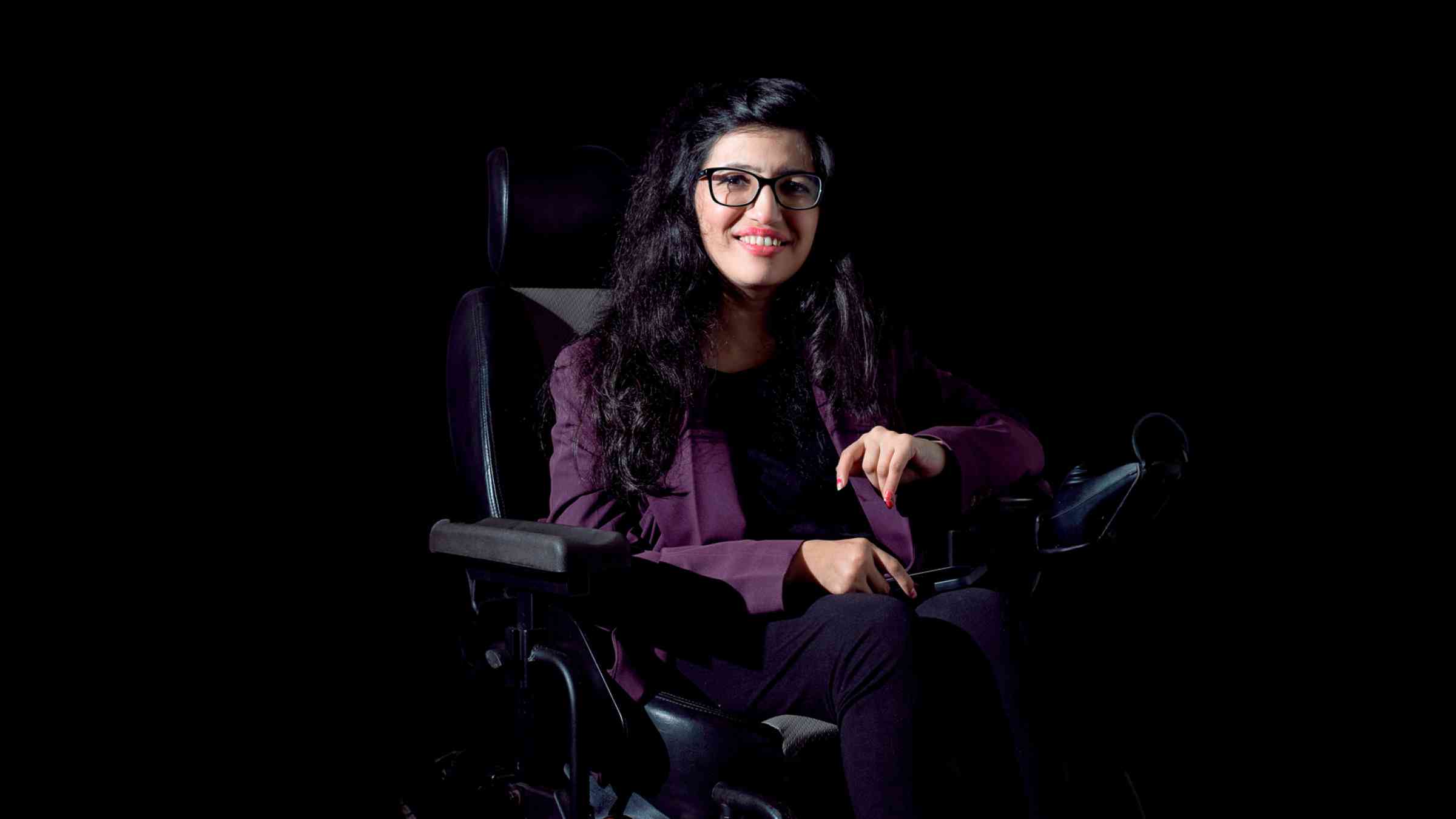Abia Akram: “If policies don’t have teeth, change can’t happen”

In 2022, Abia’s homeland Pakistan experienced the worst floods ever to hit the country. In 2005, a disastrous earthquake devastated the Kashmir region. In 2011, unprecedented, torrential monsoon rains caused severe flooding in 16 districts of the Sindh province.
“Our country, and the whole of South Asia, is a disaster-prone area,” Abia says. “When disasters hit, women with disabilities, sadly, have a very low survival rate. Besides, their basic needs for health, wash, shelter, food and education are not met. It is a key area that really requires more solutions and systematic changes.”
For over two decades, Abia Akram has been a leading and vocal advocate for the rights of women with disabilities, in more than 30 countries, especially in the context of gender justice, financing for development, climate change and inclusive disaster risk reduction (DRR).
She is the founder of the National Forum of Women with Disabilities in Pakistan and currently serves as a member of the Council on the Rights of Persons with Disabilities of the Ministry of Human Rights, among many other roles and international engagements that she juggles.
When it comes to DRR, Abia wants to leave no one behind. “We always say that disasters are inclusive but that the response isn’t,” she says. She also notes that despite the fact that the international policy documents and standards are in place (such as the Sendai Framework, the UN Convention on the Rights of Persons with Disabilities and the Sustainable Development Goals), the gaps in implementing them are admittedly “huge”.
In this respect, one of the areas that Abia focuses on is the information gap. “Women with disabilities need to have better access to information and data. Removing that information barrier is how we can create a more inclusive society.”
Abia has long advocated for a “twin-track approach” to DRR and development that seeks to empower marginalized groups (including women with disabilities) through their active participation in the decision- making process that affects their lives. It also ensures that their needs, concerns, and perspectives are taken into account at all stages, including planning, implementation and monitoring of DRR actions, climate change policies, and conflict prevention and mitigation.
“It is very important to translate policies in formats that are more accessible, that are easy to understand for those who are concerned at the community level. That is how they can be mobilized and can contribute. The diversity of needs must be taken into consideration. If policies don’t have teeth, change can’t happen.”
Abia’s work is intersectional by nature; it takes into consideration the diversity of persons living with disabilities. “It is not only about women,” she says, “but also about transgender persons, older people, the youth as well as ethnic and religious minorities. We all need to work together towards more inclusivity.”
To that aim, Abia established the Ageing Disability and Diversity Task Force to raise awareness among government officials and policymakers about the specific risks and challenges faced by all persons with disabilities.
Reflecting on her winning the 2023 WIN DRR Leadership ‘Rising Star’ Award, Abia says: “it is giving me the opportunity to take on the huge responsibility of giving the women out there who are really still struggling the voice to be heard, and to help create more opportunities for them.”
Finally, she wants to leave us with this important message: “Disability rights are human rights. If we are serious about fostering a more resilient and inclusive society, it is our responsibility to create positive change for the millions of persons living with disabilities so that they can live dignified lives. Women have very strong voices and they are the best advocates of their own rights.”